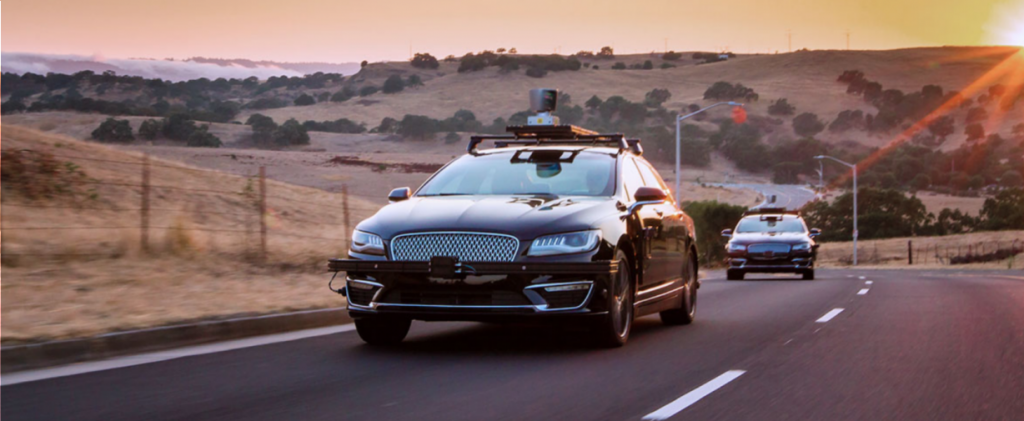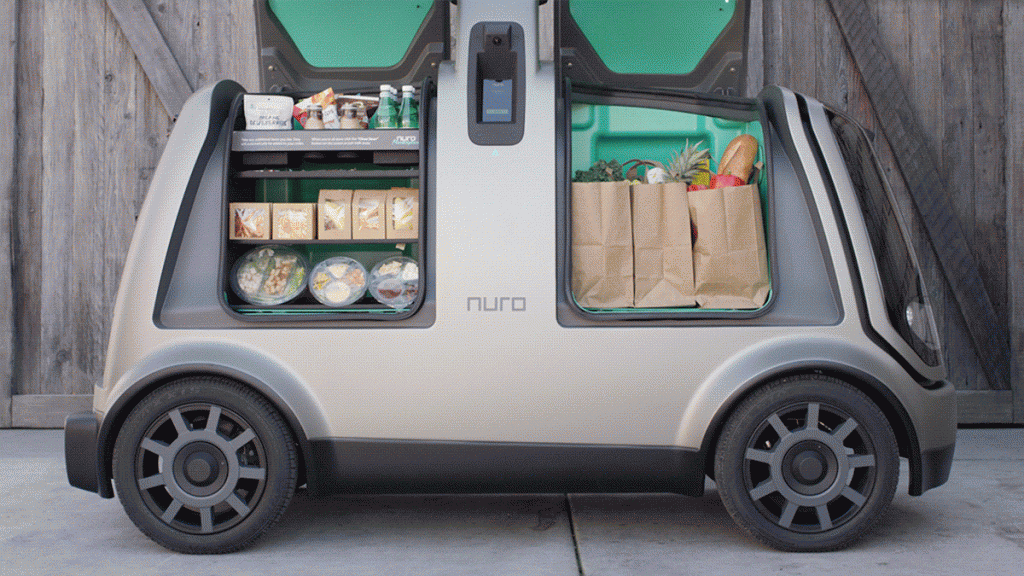The automobile industry has never taken a break from innovating since the debut of the Motorwagen, the world’s first car. Automakers are continuously attempting to make their vehicles faster, safer, and more comfortable. To make driving more comfortable car manufacturers looked to automation technologies to make driving less tedious. To start with, (Level 1) automation enhanced the quality of driving using technologies like cruise control. Taking things a step further, cars began to feature assisted steering and acceleration (Level 2). Going even further, cars included LiDAR sensors that take care of monitoring operations (Level 3). The next level (Level 4) of car automation took complete control over steering, accelerating, braking, and monitoring but still required a driver to maneuver it under conditions like traffic jams. Today, we’re on the brink of the ultimate in automated driving that requires zero human intervention from start to end (Level 5). Today’s self-driving cars don’t need pedals, brakes, gear levers, a steering wheel, or even the driver’s seat. These vehicles can independently handle the most complex traffic jams and ensure its passengers reach their destination without breaking a sweat. Here is a list of the top eight dynamic full-stack self-driving startups that are successfully making autonomous vehicles a reality today.
Zoox
Zoox is working on building its bidirectional autonomous car for ride-hailing services. Founded in 2014, Zoox has managed to become one of the more well-established self-driving startups, raising $500 million and is currently valued at $3.2 billion. Zoox was very secretive about its projects. However, the company recently did an interview with Bloomberg where they showed off their self-driving robot taxi.
Their self-driving taxi is a bidirectional, all-electric and fully autonomous vehicle. It doesn’t have a steering wheel or a dashboard. The interior has two bench seats that face each other. The looks are nothing to brag about, but for an early prototype, they’re exclusively focused on the driving prowess of their robot taxi than its looks.
Though Zoox’s secretive nature helps in protecting their designs from being copied, they still have the disadvantage of missing out on customer feedback. Companies like Waymo and NuTonomy grew by learning from customer feedback and their tests with the general public. Companies like AImotive and Roadstar.ai also seem to be very focused on rolling out their robotaxi. Zoox undoubtedly has healthy competition.
However, the autonomous vehicle industry experts and those who follow self-driving startups believe that Zoox is headed for something big. According to Bloomberg, Zoox is will publicly deploy its self-driving taxis by 2020.
Pony.ai
Founded in 2016, Pony.ai is positioning itself as one of the most interesting self-driving startups to watch. The 2-year-old startup has hit the elusive $1 billion valuation, reaching unicorn status.
Pony.ai raised $112 million this January in its first round of funding. It raised another $102 million in the second round of financing in July. The company is likely to use the new capital to expand its autonomous vehicle fleet.
Pony.ai’s self-driving platform empowers China’s first fully self-driving fleet. Followed by the United States, China created its national regulations on public-road tests of autonomous vehicles this May. These regulations allowed local governments to issue road-test car plates and approve them. Pony.ai became the first to get a T3 license (highest available level of permit) for testing autonomous vehicles in Beijing.
Besides rolling out autonomous cars, Pony.ai has launched its self-driving taxi services.
Drive.ai

Drive.ai is a full-stack self-driving startup. It focuses on building a solution to turn any vehicle into a self-driving car. The company is making all the necessary hardware and software required for its projects.
Drive.ai has partnered with the city of Frisco, Texas, to launch its ride-hailing service in Texas. Unlike Zoox and Pony.ai, Drive.ai’s taxi services are based on Level 4 self-driving cars. The taxis will have drivers to take control when the vehicle misbehaves. This is to ensure safety and encourage people to use the service.
The setup looks like an airport shuttle with its tightly geofenced area. As of now, the vehicles only run along fixed routes within this geofenced area. The taxis are made recognizable by the uniform deployment of orange and blue Nissan NV200 vans. These vans come with exterior screens that can display messages. This way the vans communicate with pedestrians and drivers.
The platform is currently available only to the members of Hall Group’s communities. People will be able to take free rides from fixed pickup to drop-off locations. In the future, the program will extend to all residents of Frisco.
Drive.ai has also partnered with Lyft to launch a self-driving ride-hailing program in San Francisco. But this program is yet to start.
Aurora

Aurora is a full-stack autonomous vehicle startup founded in January 2017. The startup has raised $90 million from Greylock Partners and Index Ventures. LinkedIn co-founder Reid Hoffman is one of its board members.
The company kept its operations confidential until it made a flurry of announcements in January at CES 2018. Aurora’s partnership with Volkswagen and Hyundai was also disclosed at the show. Hyundai and VW have selected this 1-year-old startup to provide their self-driving software. Aurora is working with Volkswagen on integrating the self-driving systems of Volkswagen’s new Moja brand.
In February 2018, Aurora signed a partnership with Byton, one of the leading electric vehicle makers in China. But Aurora did not disclose the financial details of its businesses.
As of now, Aurora is focused on Level 4 autonomous vehicles and the focus is expected to scale up to Level 5 in the future.
Kache.ai
Perhaps the most mysterious of our self-driving startups is Kache.ai, a company that is building autonomous trucks. The company was founded by Anthony Levandowski, who was a former employee of Waymo and founder of Otto (autonomous truck maker).
Uber acquired Otto. Google’s Waymo sued Uber when it found out that Otto was using proprietary files stolen from Google. It was alleged that Anthony Levandowski took the files while working with Waymo and used them for Otto. As a result, Uber fired Levandowski. Levandowski now reenters the autonomous vehicles industry with his new startup Kache.ai.
The company is in stealth mode and hasn’t revealed much about its product. Earlier, the company website had a picture of a truck with the caption “Kache.ai — The Future of Intelligent Driving.” But the website appears to still be a work in progress.
In one iteration, the website revealed that the company is located in San Francisco and is looking for talented software and hardware engineers.
Companies like TuSimple, Embark, and Starsky Robotics are already building their autonomous trucks. Kache.ai is expected to bring something new to the table to stand out from its competitors.
Nuro.ai

Nuro focuses on building autonomous vehicles for parcel deliveries that involve zero human assistance. The company already has a prototype and calls it R1. R1 doesn’t have a driver’s seat, making more room for packages.
Engineers initially considered designing the R1 to ride on sidewalks. But later, they later opted to make them run on roads. The R1 is almost tall as a Toyota Highlander but only half its width. This narrow width would make it easy for the R1 to maneuver around pedestrians and other vehicles.
Since the R1 doesn’t have a driver or a delivery person to ring the customer’s doorbell, Nuro will use an app to inform people when deliveries arrive. The app will also generate a code using which the customers can unlock the vehicle and retrieve their orders.
Kroger (one of the biggest grocery chains with 2,782 stores in 35 states) has partnered with Nuro.ai to automate their delivery process.
Nio
Nio is a Chinese startup that specializes in making electric cars. Nio was founded in 2014, and its track car EP9 made its debut the same day the brand was launched.
The Nio EP9 is the fastest Electric Vehicle (EV) in the world. The car was exhibited in the Goodwood Festival of speed. The design of the superfast EV is breathtaking. Nio designed EP9’s interior with just a cockpit and chassis to keep the strength high and weight low.
The car comes with an interchangeable battery system. The battery can be charged in just 45 minutes, which would give an impressive 265 miles in normal driving. The EP9 can get to 124 mph in only 7.1 seconds. It can hit a peak speed of 195 mph
The 4-year-old startup specializes in making Electric SUVs. The current models include ES8 and ES6.
Formula 1 world champion Nico Rosberg recently visited the electric car startup and test drove the company’s ES8. ES8 is a twin-motor, seven-seater SUV. The SUV has a cute digital assistant called Nomi that can respond to voice commands. Nomi handles multiple functions like finding destinations, preferred vehicle settings, and even your favorite music. Rosberg expressed that he was impressed by the technology and its quality.
EasyMile
EasyMile is one of the leading AI companies that specializes in autonomous vehicle technology. The core interest of the company’s autonomous technology is inclined towards minibuses. This is an excellent decision because moving six to 12 people in a minibus is a lot more efficient than transporting one or two people in an electric supercar.
Founded in 2014, the startup is currently making headlines in Germany with its self-driving minibus. The minibus is now in operation in Bad Birnbach (Lower Bavaria, Germany).
Earlier in 2015, EasyMile gave some of its autonomous buses to the Contra Costa Transportation Authority. Like many self-driving startups, the company is also running its pilot projects around the world.
Self-driving startups: Just getting revved up
Google and Tesla are aggressively working on their self-driving cars. Uber and Lyft are trying to incorporate AI in their ride-hailing services. Companies like Volkswagen and Hyundai are joining hands with full-stack self-driving startups creating a win-win situation by helping each other. Ford and General Motors are going a step further by bringing self-driving startups in-house rather than partnering with them. (Ford acquired a majority share of Argo.ai and GM bought Cruise). Cyngn (formerly known as Cyanogen) is back after its OS defeat and has shifted gears to move towards autonomous vehicle technology. These companies are promising a healthy competition for the startups mentioned above. A few years down the line, the world will be left with grandparents who tell stories about how they used to steer and drive cars.
Featured image: Shutterstock




No concern about environmental effects on technology/ Snow, icing, mud & salt spray deposits, temperature extremes, etc.
Good bunch of info, is there a way comman man can invest in these startup to their capacity?